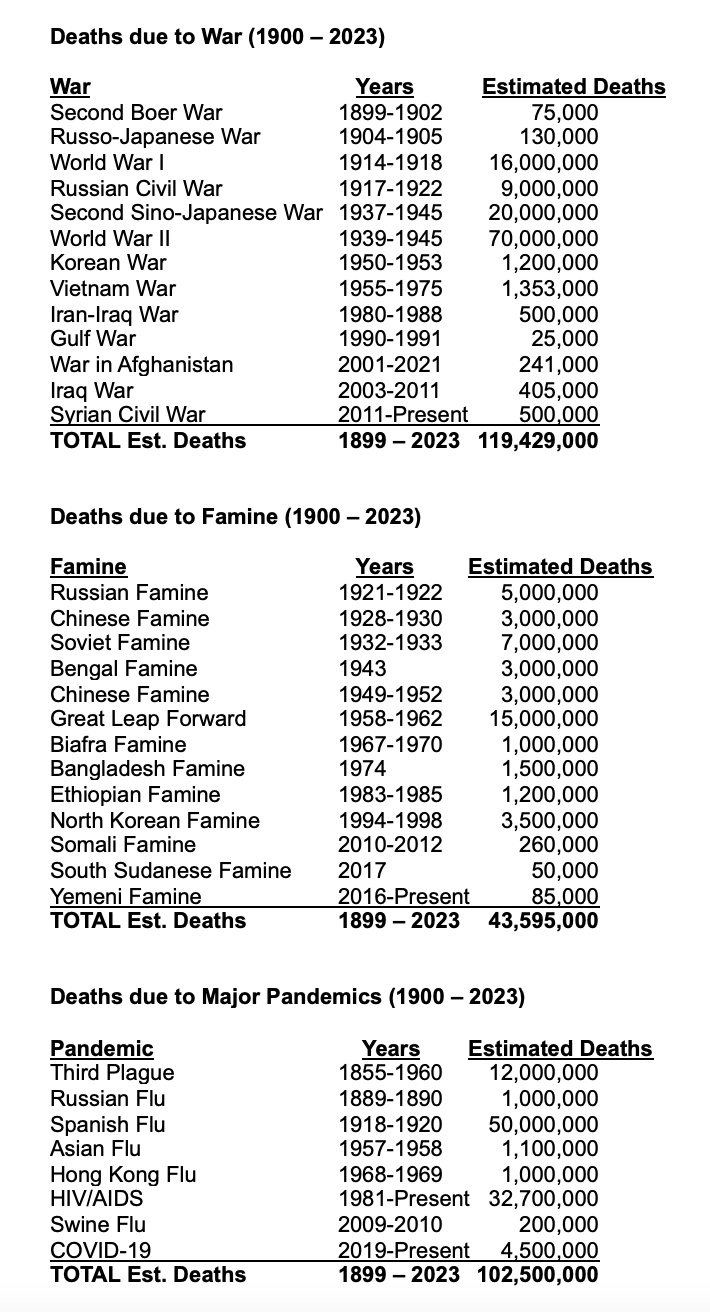by Peter Diamandis: Do I worry about the downside of AI, climate change, terrorism, political polarization, social unrest, and other problems?
The answer is “Yes.”
These are all very real challenges that make me nervous about some aspects of the future.
But do I believe, on the whole, that “the future is better than you think”? Am I more optimistic than pessimistic about the next 30 years?
Again, the answer is an emphatic yes, even though I acknowledge that humanity will concurrently face various dangers and hardships.
Over the next few blogs in this Scaling Abundance series, I hope to convey—or at least sow the seeds of—hope and possibility. Despite the immediate dangers we face, humanity has a history of finding ways to overcome obstacles, even during prolonged periods of difficulty.
To reinforce your belief in this somewhat bold statement, we need only reflect on the past century.
Let’s dive in…
Getting Perspective: The Past 123 Years
Consider this thought experiment: Is life today better than it was 123 years ago? Simply put, would you prefer to live now or at the beginning of the twentieth century?
Reflect for a moment on life in 1900, a time when existence was harsh, short, and labor-intensive. The average life expectancy barely exceeded 50 years, and survival often depended on backbreaking workweeks of 70 to 80 hours. There were none of today’s conveniences such as smartphones, electricity, or Starbucks. And it’s easy to overlook the unique challenges of that era, such as the 100,000 horses in New York City alone producing over 2.5 million pounds of manure daily.
Regardless of today’s challenges, nearly everyone I’ve spoken with prefers living now to the early 20th century. It’s understandable, considering the hardships and brutality of life back then.
But there’s a deeper historical insight that’s even more compelling, one that strengthens my belief in our continued progress and abundance.
It is the realization, that during the last 123 years we have witnessed extraordinary increases in humanity’s living standards, even while facing untold hardships, death, and destruction.
What do I mean by untold hardships?
It’s easy to lose perspective and forget that between 1900 and 2023, humanity endured over 265 million deaths due to war, famine, and pandemics. Here’s a succinct overview of where these staggering numbers come from—a somber yet inspiring testament to the resilience and growth that have brought us to the world we treasure today:

Total of 265,524,000 deaths due to war, famine, and pandemics between 1899 – 2023.
The Problems Ahead
As I mentioned in the last blog, it’s important to me that this series isn’t viewed as a techno-utopian treatise.
Instead, my goal is to provide a compelling and hopeful vision of what might be possible—to acknowledge the challenges we have and the possible solutions that the approaching Metatrends might offer us.
Ultimately, I hope that this series can offer an antidote to the relentless fear and pessimism that bombard us 24 hours a day from our media outlets,
The next several blogs are dedicated to reviewing the recent challenges that humanity has overcome—and those that lay before us. We’ll examine these challenges in three distinct categories:
1. First, those challenges from decades past, which initially seemed ominous and insurmountable, but were ultimately solved by innovation, hard work and/or policy changes.
2. Second, today’s challenges that represent very real and present dangers, that can’t be ignored and deserve the attention of our brightest minds.
3. Third, a class of challenges that I believe are misperceived. While many consider them to be serious issues, they may in fact not be challenges at all.
One of the saving graces of humanity’s ability to overcome grand challenges is being able to perceive problems way in advance of them impacting us at scale.
That early detection—perhaps the result of our curious minds or our survival instinct—ultimately sets into a motion a domino of events, calling into action the world’s changemakers and problem solvers (scientists, engineers, and entrepreneurs) to address the problem before it fully arises.
The even better news is that during the time between the first detection of the risk and its full potential impact, technology continues to accelerate at exponential speeds, enabling the problem solvers to attack the challenge with a new generation of tools at their disposal.
Why This Matters
Albert Einstein famously stated, “We cannot solve our problems with the same thinking we used when we created them.”
An appropriate reinterpretation of Einstein’s quote for our technological age might be:
“We cannot solve our problems with the same technologies that created them.”
Technology is accelerating rapidly.
In this decade alone, both AI and quantum technologies will unleash new generations of tools that entrepreneurs can use to solve grand challenges created during the last generation.
As I like to say, “the world’s biggest problems are the world’s biggest business opportunities.”
And an early warning of an impending danger can act as a clarion call to activate innovators, policy makers and entrepreneurs who dare to solve these grand challenges, and in the process spin-up a new generation of multi-billion-dollar businesses.





















































